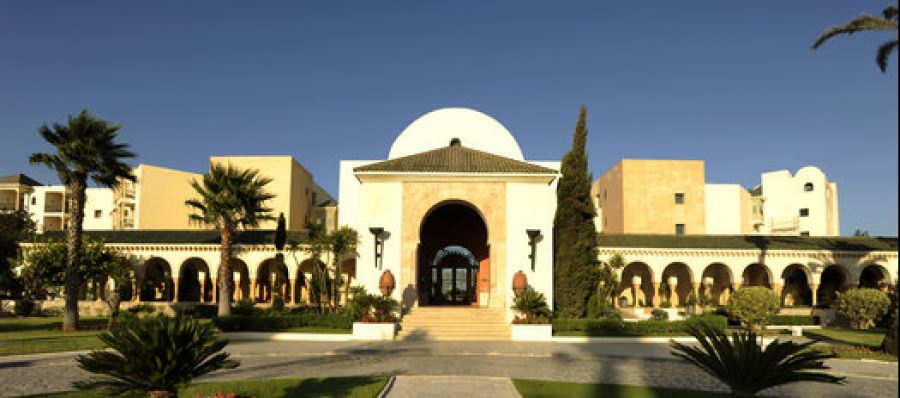By Libya Herald reporter.
![The Residence hotel in Tunis where the government . . .[restrict]was agreed (Photo: Social media)](https://www.libyaherald.com/wp-content/uploads/2016/01/The-Residence-Tunis-exterieur-hotel-Tunisie-300x133.jpg)
The Presidency Council headed by Prime-minister designate has announced the names of members of the government of national unity. The ministers are (in the order announced by Council):
- Defence: Al-Mahdi Ibrahim Al-Barghathi
- Justice: Abdulsalam Mohamed Al-Junaidi
- Interior: Aref Saleh Al-Khojja
- Foreign Affairs: Marwan Ali Abu Sraiweil
- Finance: Al-Taher Mohamed Sarkaz
- Local Government: Bidad Gansou Massoud
- Health: Mohammad Sulaiman Buzgaiya
- Education: Khair Milad Abubakr
- Higher Education and Research: Mahmoud Jumaa Al-Ojili
- Economy: Abdulmutalib Ahmad Bufarwa
- Planning: Khaled Muftah Abdulgader
- International Cooperation: Mahmoud Faraj Al-Mahjoub
- Communications: Atef Miloud Al-Bahri
- Transportation: Hisham Abdullah Abushkaiwat
- Industry: Faraj Al-Taher Senussi
- Oil: Khalifa Rajab Abdulsadiq
- Electricity: Usama Saad Hamad
- Agriculture: Adel Mohammad Sultan
- Labour: Fadhi Mansour Al-Shafi
- Training and Vocational Training: Mukhtar Abdullah Ojwaili
- Social Affairs: Ahmad Khalifa Braidan
- Water Resources: Usama Mohamed Abdulhadi
- Housing and Utilities: Ali Kosouairdi
- Youth and Sports: Nureddine Ahmad Al-Traiki
- Culture: Asma Mustafa Al-Usta
- Awqaf and Islamic Affairs: Mohamed Ahmad Alwalid
- Aviation and Air Transport: Said Ahmad Aldabeeb
- National Reconciliation: Yousef Abubakr Jalala
- Information: Khaled Abdulhameed Najem
- Arab and African Affairs: Naser Salem Emhemed
- Minister of State for Parliamentary Affairs: Said Ahmad Al-Marghani
- Minister of State for Human Rights and Refugees: Saleh Al-Ghazal Al-Junab
The declaration, announced early this morning, was signed by seven of the nine-member Presidency Council. Ali Gatrani (deputy prime minster-designate) and Omar Al-Aswad (Presidency Council minister) had earlier suspended their membership of the council. They did so in support for General Khalifa Hafter, demanding that the Libyan Political Agreement clause that the Presidency Council take over as supreme commander of the armed forces be dropped and, reportedly in opposition to the appointment of Al-Mahdi Ibrahim Al-Barghathi as defence minister.
The names were selected in collaboration with members of the House of Representatives negotiating on behalf of their towns and areas, not on the basis of competence for the job. This was done to try an ensure that the HoR now votes for the package. It has to do so within ten days, by 29 January.
As a result of thise process, only only two ministers are woman, Asma Mustafa Al-Usta at the culture ministry and Fadhi Mansour Al-Shafi at labour, and both are said to have been decided on by Serraj himself.
There is, significantly, no ministry for revolutionaries’ and martyrs’ affairs, including dealing with the wounded. Its absence is seen as an indication that the unity government government wants to move on.
The deputy ministers will be chosen, again largely on the basis of where they come from will be selected in the next few days. There will two for each ministry, meaning that the government including the nine members of the Presidency Council will contain 105 ministers. [/restrict]







